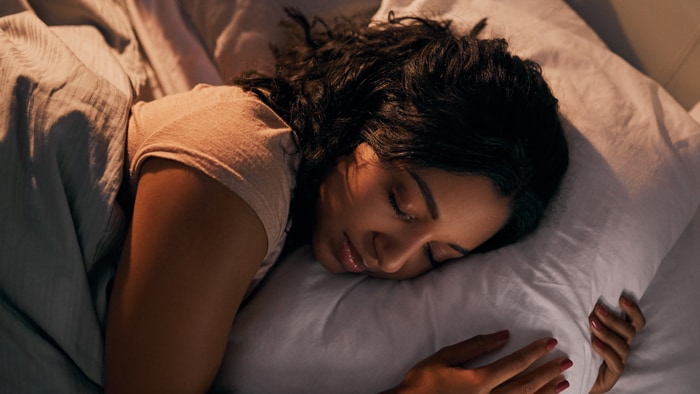Skip the extra slice of pie and get a good night’s sleep
The holidays are known for wreaking havoc on our daily routine—neighborhood get-togethers, company parties and getting ready for the holidays often mean we exercise and sleep less and eat and drink more. But that second glass of sherry or extra slice of pie could be causing you to lose even more sleep than you thought. Most of us have an eating schedule we tend to stick to throughout the year, which the body is accustomed to. In other countries, eating late is the norm. However, in North America, the last meal of the day usually occurs well before 8 p.m. When we eat later than what our bodies are used to, it upsets our body’s schedule. Research from the University of California has shown that veering from that schedule can reset a body’s “food clock,” according to an article in Forbes on the study. “According to the study’s authors, when you suddenly begin indulging to excess, eating at different times of day than usual, or eating at night, it’s like you upset your food clock, and start the hands spinning,” the article noted. “Studies have shown that eating late at night, working night shifts, and jet lag all throw the food clock off.” Indeed, having irregular mealtimes and/or unusual sleep-wake cycles—which is a normal occurrence for many of us during the holidays—contributes to “circadian misalignment,” when a person’s behaviors become misaligned with the body’s natural rhythms, noted Jennifer Ventrelle, MS, RD, a dietitian and lifestyle program director for the Rush University Prevention Center. Such a misalignment impacts all of the body’s internal regulatory systems, including its ability to appropriately metabolize food, which ultimately leads to weight gain. Getting enough sleep can help boost your body’s ability to shed extra pounds. The more sleep a person gets, the less leptin—a hormone that controls hunger—is created by the body, according to KishHealth System. However, going to bed with a full—or overfull—stomach can lead to a night of tossing and turning, as the body doesn’t have enough time before bed to process a stomach full of food. As a result, late-night eaters sleepers don’t get enough (or any) deep sleep, which is what the body needs to rest and repair itself. If you must take your eating and drinking beyond 8 p.m. (the time Ventrelle recommends we stop eating for the day), eat foods that are rich in carbohydrates and have a moderate amount of protein, such as a banana and a glass of milk or slice of toast with turkey and cheese. Of course, those selections don’t sound very festive, but moderation is key. So skip the second cup of eggnog and head for bed.



